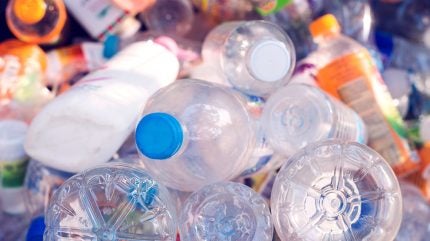
Researchers at the University of New South Wales (UNSW) have introduced a groundbreaking low-energy methodology to recycle plastic.
This process can convert various waste plastics into polymer nanoparticles in water, which can be reused or applied in industries such as asphalting and waterproofing.
The new method, developed by School of Chemical Engineering Professor Per Zetterlund and Dr Vipul Agarwal, also efficiently removes dyes from plastic waste, further streamlining the recycling process.
In collaboration with FP Paradigm, the team aims to further develop and commercialise the technology, primarily focusing on polyethylene terephthalate (PET) recycling.
Recently, FP Paradigm’s research and development subcontractor Paco Industries entered into an agreement with the Arnott’s Group to explore the application of this sustainable PET alternative in its product packaging.
The technique can convert contaminated PET from mixed waste into food-grade PET for the food and beverage sectors.

US Tariffs are shifting - will you react or anticipate?
Don’t let policy changes catch you off guard. Stay proactive with real-time data and expert analysis.
By GlobalDataDr Agarwal said: “Our method has the potential of causing no mechanical or chemical degradation of the polymer, so we believe it may be possible to recycle the plastic a higher number of times than using existing recycling processes.
“In addition, there is no need for extensive cleaning of the waste plastic before it is recycled. This process also has the potential to separate the polymer from various additives such as dyes, eliminating one of the stages currently required in current recycling processes.
“The other advantages of this new technology are tolerance to mixed plastic waste allowing segregation of different waste plastics during the recycling process, and recycling of chemicals used in the process.”
The patent of Professor Zetterlund and Dr Agarwal encompasses the specific process that converts waste plastic into an aqueous dispersion of plastic polymer nanoparticles.



